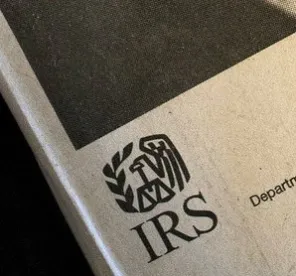Plan sponsors and other administrators of eligible retirement plans must ensure that these plans are operated properly in accordance with the applicable requirements of the Internal Revenue Code, including the applicable plan document requirements. Plan sponsors and other administrators should make voluntary and timely corrections of any plan failures, whether involving discrimination in favor of highly compensated employees, plan operations, the terms of the plan document, or adoption of a plan by an ineligible employer. Timely and efficient correction protects participating employees by providing them with their expected retirement benefits, including favorable tax treatment.
The Internal Revenue Service (IRS) understands that the qualification requirements under the Internal Revenue Code applicable to retirement plans are complicated and that mistakes are made and errors occur. The Employee Plans Compliance Resolution System (EPCRS) was implemented by the IRS to promote voluntary compliance of retirement plans intended to meet the requirements of the Internal Revenue Code. EPCRS permits a plan sponsor to correct the failures of a plan that has not met the requirements for a period of time, thereby allowing them to continue to provide their employees with retirement benefits on a tax-favored basis.
EPCRS offers three correction programs:
-
Self-Correction Program (SCP) – Correct certain plan failures without contacting the IRS or paying a user fee
-
Voluntary Correction Program (VCP) – Correct failures not eligible for SCP and to obtain approval of the IRS that the failures were properly corrected
-
Audit CAP – Resolve failures discovered during an IRS audit that cannot be corrected using SCP
The IRS made significant changes and revisions to EPCRS in Revenue Procedure 2021-30, nine of which are detailed below, and some of which may be beneficial to plan sponsors, participants, third party administrators, and practitioners.
-
Extension of Self Correction Period for Significant Operational Failures
Effective July 16, 2021, SCP correction period for significant operational failures is extended from the last day of the second plan year following the plan year for which the failure occurred to the last day of the third plan year following the plan year for which the failure occurred. SCP allows plan sponsors to correct insignificant operational failures at any time.
Note: This extension has the result of also extending the safe harbor correction method for employee elective deferral failures. Under this safe harbor, failures that exceed three months but do not exceed the extended SCP correction period for significant failures may be corrected with a 25% qualified non-elective contribution.
-
Expansion of Self Correction for Retroactive Plan Amendments
The new EPCRS still requires retroactive plan amendments made to correct operational failures under SCP for Section 401(a) and 403(b) result in an increase of a benefit, right, or feature. Effective July 16, 2021, the new EPCRS makes it easier to use a retroactive corrective amendment under SCP by removing the requirement that all participants in the plan benefit by the retroactive amendment.
-
Anonymous VCP submissions
Under previous versions of EPCRS, plan sponsors could submit a VCP application anonymously and negotiate the correction with the IRS without revealing the identity of the plan sponsor or the plan. If an agreement was reached, the plan sponsor would identify itself and the plan. Effective January 1, 2022, anonymous submissions are no longer permitted under VCP.
-
Anonymous Pre-Submission Conferences
Effective January 1, 2022, the IRS will permit plan sponsors or their representatives to make an anonymous written request for a pre-submission conference to discuss a potential VCP submission at no cost to the plan sponsor. These conferences offer an opportunity to discuss issues and matters for which a VCP compliance statement may be issued if (i) the correction method to be requested is not described as a safe harbor correction method in Appendix A or B of EPCRS and (ii) the plan sponsor is eligible for and intends to submit an application under VCP. The IRS feedback about the error and the proposed correction will be oral and advisory only and non-binding. Following the pre-submission conference, if the plan sponsor submits a VCP request, it can no longer be anonymous.
-
Overpayments from Defined Contribution Plans
Effective July 16, 2021 the new EPCRS clarifies that a plan may permit a recipient of an overpayment from a defined contribution plan to choose the method of repayment applicable to the overpayment, and that such method may include an installment agreement (in addition to lump sums and reductions of future payments, as permitted in the prior EPCRS).
-
Overpayments Correction Options for Defined Benefit Plans
The new EPCRS expands the correction principles to allow plan sponsors to fix operational failures when plan participants or beneficiaries receive payments from defined benefit plans that exceed what is permitted by the terms of the plan, effective July 16, 2021.
In certain cases, the new principles reduce the need to seek repayment from participants or beneficiaries who received overpayments, and, in some cases, do not require the plan sponsor to reimburse the plan for overpayments.
-
Extension of Automatic Enrollment Failures
The new EPCRS extends the sunset of the safe harbor correction method (from December 31, 2020 to December 31, 2023) to correct missed elective deferrals for eligible employees subject to an automatic contribution feature in Section 401(k) or 403(b) plans.
-
Increased Threshold for De Minimis Correction Amounts
The new EPCRS increases the threshold for certain de minimis amounts for which a plan sponsor is not required to implement correction from $100 to $250.
-
Payment of Audit CAP Sanctions
Payment of Audit CAP Sanctions are required to be paid through the Pay.gov website (instead of by certified check or cashier’s check) beginning January 1, 2022.




 />i
/>i
